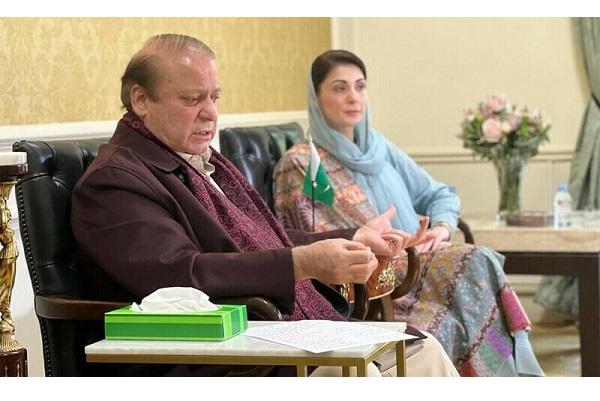ISLAMABAD: The Islamabad High Court (IHC) on Thursday virtually cleared former prime minister Nawaz Sharif in the Avenfield apartments reference, observing that the accountability court order convicting Mr Sharif, his daughter Maryam Nawaz and son-in-law retired Capt Mohammad Safdar was “not correct”.
IHC Justice Aamer Farooq and Justice Mohsin Akhtar Kayani issued the detailed verdict on the appeals filed by Ms Nawaz and her spouse, PML-N leader Capt Safdar, against their conviction.
Subsequently, the IHC ruled that “the prosecution has not been able to prove its case” against the duo and the conviction recorded against the appellants was without justification or basis. It declared the accountability court’s decision regarding the conviction of Mr Sharif and his family “not correct”.
Accountability court judge Muhammad Bashir had on July 6, 2018, convicted the three in the Avenfield apartments reference that was probed by a six-member joint investigation team constituted to look into the revelations in Panama Papers. The trial court had also accused Ms Nawaz of being the beneficial owner of offshore companies that owned the properties.
The court was of the opinion that amongst the accused, Nawaz Sharif was the only public office holder at the relevant time and the other co-accused were his children and son-in-law.
The IHC bench examined the allegations levelled against Mr Sharif and observed that despite his appeal not being before the bench, his conviction and that of his daughter was interlinked.
The detailed order stated that the accountability watchdog could not give a satisfactory answer to the question whether the prosecution had “discharged the onus required on its part”. It pointed out that the Supreme Court had laid down the principles for shifting the burden of proof to the accused, who must be a public office holder, and according to which the resources or property found in his/her possession should be disproportionate to his/her known sources of income.
The prosecution had to prove that Mr Sharif had purchased Avenfield apartments in the name of Maryam through corrupt and illegal practices and, she being his dependent, had aided and abetted him by concealing the true ownership. It also had to prove that when the properties were acquired, Mr Sharif was a public office holder. The court order said: “There does not exist on record any evidence to the effect.”
The prosecution then had to lead evidence regarding known sources of income of Mr Sharif, regarding which nothing existed on record in terms of income tax returns or bank accounts or other sources. No cogent evidence existed as to Mr Sharif’s known resources/income; likewise there was nothing on record as to the worth of Avenfield apartments at the relevant time or even the price paid for the purchase of the said properties, the court noted.
If the prosecution’s version was to be believed that the properties were purchased/acquired between 1993 and 1996, the known sources of Mr Sharif were needed to be established at the time as well as the worth of the apartments, the court order said, adding the only justification for the case against Mr Sharif was that Avenfield apartments were purchased in the names of the companies and the beneficial owner of the same was Ms Nawaz and she is his dependent.
The prosecution was required to lead to the evidence beyond reasonable doubt that Ms Nawaz was financially dependent on her father to prove the allegation of abetment



